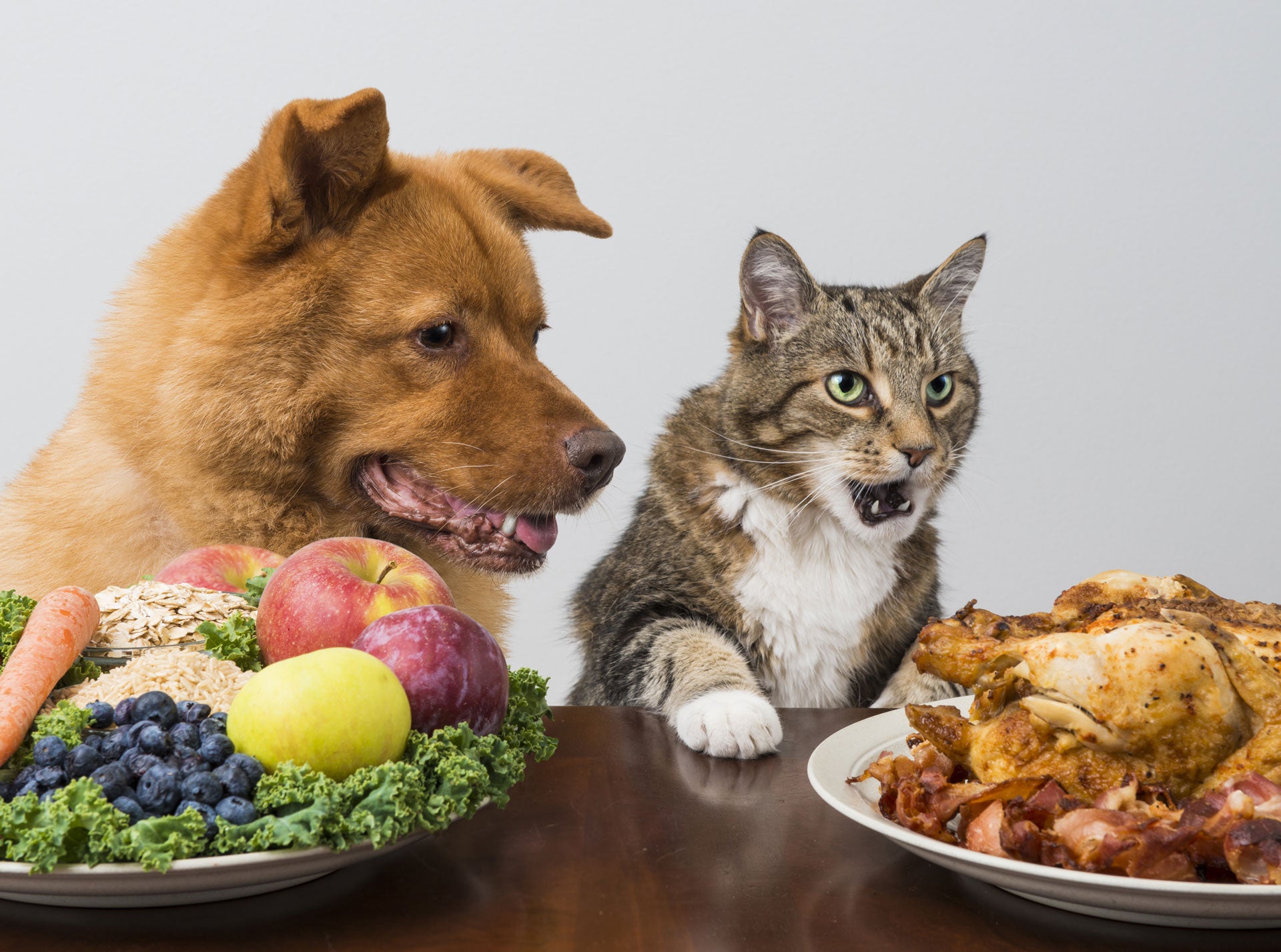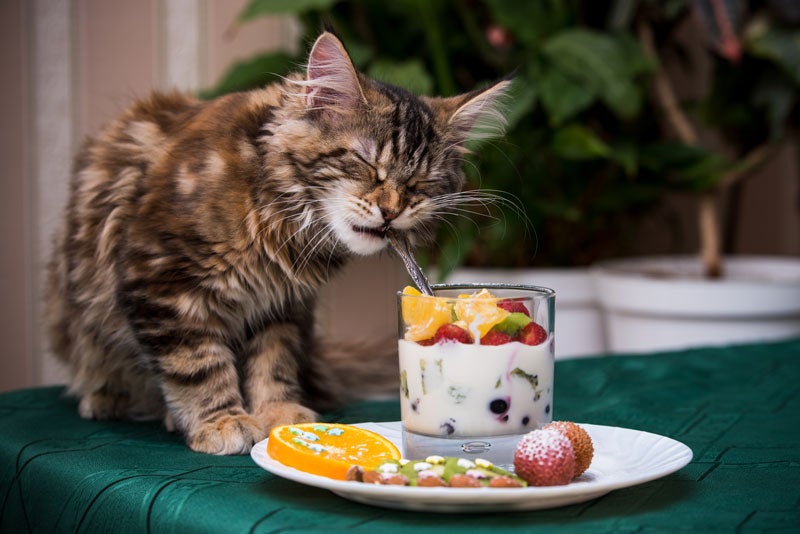
The increasing awareness on the environmental, personal health and ethical arguments for reducing meat consumption has lead to an increase in the number of vegetarians, vegans and flexitarians. And with more people cutting out meat of their own diets, more are exploring the possibility when it comes to their pets. Can technology help, and if not, could advances on the horizon?
Whilst dogs can adapt to a meat-free diet, cats are obligate carnivores. Their natural diet requires them to eat meat in order to get key nutrients such as taurine, vitamin A, vitamin B12 and arachidonic acid. As such, feeding a cat a plant-based diet could actually break animal welfare laws.
Plant-based diets for pets are on the rise
Despite the obvious ethical doublethink of agreeing to look after an animal and then enforcing your own dietary beliefs on them, there are a small minority of people who feed their animals plant-based diets. In a survey conducted by researchers at the University of Guelph’s Ontario Veterinary College, along with colleagues in New Zealand, 1.6% of dog owners and 0.7% of cat owners admitted feeding their animals a meat-free diet. These owners also stated they themselves were either vegetarian or vegan.
This might seem like a small percentage, but lead author Dr Sarah Dodd stated that although the study wasn’t designed to find out whether the number would grow in the future, it is likely.
“While only a small proportion of pet owners are currently feeding plant-based diets to their pets, it is safe to say that interest in the diets is likely to grow,” she said.
The same study, however, did show that 35% of pet owners currently feeding their animals’ conventional pet food would consider switching to a plant based option, providing it would still meet their animals’ nutritional needs and if approved by veterinarians.
How well do you really know your competitors?
Access the most comprehensive Company Profiles on the market, powered by GlobalData. Save hours of research. Gain competitive edge.

Thank you!
Your download email will arrive shortly
Not ready to buy yet? Download a free sample
We are confident about the unique quality of our Company Profiles. However, we want you to make the most beneficial decision for your business, so we offer a free sample that you can download by submitting the below form
By GlobalDataSo with demand increasing, will technology provide the answer?

Food science is creating safe plant-based pet foods
There is an argument that as the dietary requirements are nutrient and not ingredient, plant-based pet food is perfectly safe – provided it contains these key nutrients.
Dr Andrew Knight, a professor of animal welfare and ethics at the University of Winchester, made the case in a recent article.
“There is no scientific reason why a diet comprised only of plant, mineral and synthetically based ingredients cannot be formulated to meet all of the palatability, nutritional and bioavailability needs of the species for which they are intended,” he said.
And in the last few years we have seen launches of plant-based pet foods that claim to contain the key nutrients required.
“In fact, a growing number of commercially available vegan companion animal diets aim to do exactly this, and studies demonstrate that animals maintained on nutritionally sound vegetarian and vegan diets can be perfectly healthy,” added Knight.
As you would expect, though, given the option side-by-side cats and dogs will always opt for real meat. But what if there was a meat option that was less environmentally taxing, and more humane?
Is the future of pet food lab-grown?
With the recent increased interest in lab-grown, cultured meat, there are companies looking to disrupt the conventional pet food market. Bond Pets is working on a cultured product using chicken cells as a solution to the traditional process.
As the company says on its website: “We know the reality of pet food manufacturing today. We know it’s dirty. We know it’s held back by old systems of agriculture. And we know it strains our land, water and energy resources. But most of all we know we can do better.”
Given that pets will naturally choose meat over plant-based food, perhaps cultured meat is a better alternative. Although not meat free, many vegetarians and vegans support it as it has the potential to reduce animal slaughter.
Current meat in pet food uses by-products from animals slaughtered for human food. That is to say – pet food uses parts of the animal that are deemed not fit for human consumption. If we see an increase in alternatives to slaughtered meat for humans, and provided that cultured meat products can prove to contain the right nutrients, we may well see a proliferation of products in the pet food market in years to come.



